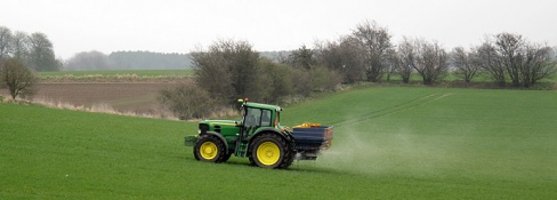
| AU projektlead: | Anders Branth Pedersen |
| AU Staff: | Helle Ørsted Nielsen, Berit Hasler |
| Financed by: | Danish Environmental Protection Agency |
| Duration : | 2008-2011 |
| External partners: | University of Copenhagen |
| Links: | Report; Newsarticle; Journal article #1; Journal article #2 |
The purpose of the research project Barriers in farmer decision-making regarding pesticide use was to uncover barriers for reducing pesticide use in conventional farming in order to identify more effective regulatory instruments in the Danish pesticide policy. ‘Effective’ is defined as the ability of the regulatory instruments to change farmers’ behaviour towards fulfilling the political goals regarding pesticide use. More specifically, the objectives were:
Approach:
1) An explorative analysis of barriers and opportunities for changing pesticide use. This part of the project involved a survey of Danish and international literature as well as qualitative interviews with two agricultural advisors and two groups of farmers from Løgumkloster and Jyderup, respectively.
2) A quantitative analysis (1164 farmer responses) based on a questionnaire sent to a representative sample of Danish farmers. The questionnaire focused on farmers’ decision practises and their barriers for changing decision practises for pesticide use. The latter included farmers’ perceptions of existing as well as new regulatory instruments. The aim of this part of the project was to investigate whether farmers could be grouped into different ‘decision profiles’ according to their motivations for using pesticides (economic vs. professional orientation) and according to the level of orientation towards detail in their decision strategy. Such a categorisation of farmers would be an important input to designing a more effective pesticide policy using targeted regulatory instruments.
3) A representative questionnaire-based economic valuation study (a choice experiment) involving the same respondents as 2). The choice experiment focused on uncovering farmers’ tradeoffs between subsidy sizes and specific requirements in subsidy schemes.
For report, newsarticle, and journal articles, please follow the links above.